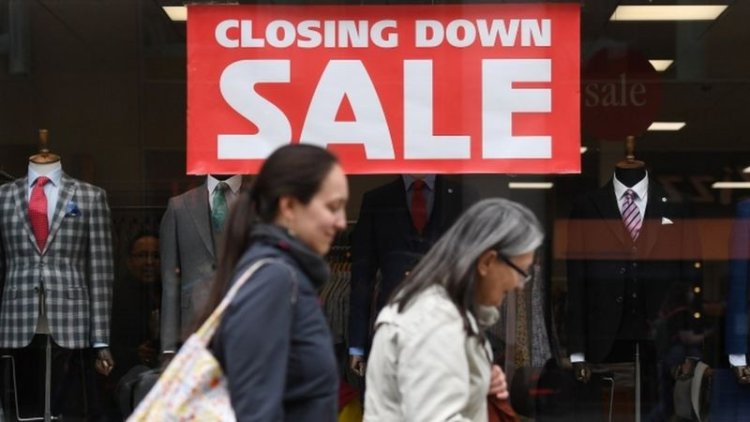The World Bank's chief warns of a global recession as a result of the Ukraine conflict.
Higher energy prices, he claimed, were already dragging on Germany's economy, which is Europe's and the world's fourth largest.

The World Bank's chief economist has warned that Russia's invasion of Ukraine might trigger a global recession if food, gasoline, and fertilizer prices rise.
On Wednesday, David Malpass said it's tough to "see how we avoid a recession" during a US business event.
Several coronavirus lockdowns in China, he added, are contributing to concerns about a slowdown.
His remarks are the latest warning about the growing possibility that the global economy may contract.
"When we look at world GDP... it's hard to see how we can avoid a recession right now," Mr.Malpass added, without providing a specific prognosis.
"Just the thought of energy prices doubling is enough to start a recession," he warned.
The World Bank slashed its global economic growth prediction for this year by nearly a full percentage point, to 3.2 percent, earlier this month.
Gross Domestic Product (GDP) is a metric for measuring economic growth. Economists and central banks keep a close eye on it since it is one of the most essential means of determining how well, or poorly, an economy is operating.
It aids firms in determining whether or not to expand and hire more workers, or whether or not to invest less and reduce their staff.
Governments also utilize it to make policy decisions ranging from taxation to expenditure. It is a key gauge, along with inflation, for central banks when considering whether or not to raise or lower interest rates.
Mr. Malpass also stated that many European countries remain overly reliant on Russian oil and gas.
Even as Western countries go forward with measures to minimize their reliance on Russian energy, this is the case.
He also said that measures by Russia to reduce gas supplies might cause a "significant slowdown" in the region during a virtual event hosted by the US Chamber of Commerce.
Higher energy prices, he claimed, were already dragging on Germany's economy, which is Europe's and the world's fourth-largest.
Mr. Malpass stated that shortages of fertilizer, food, and energy are also affecting developing countries.
Mr. Malpass also expressed alarm about lockdowns in some of China's key cities, including Shanghai, the country's financial, manufacturing, and shipping powerhouse, which are "still having ramifications or slowing impacts on the world," according to him.
"China's real estate market was already contracting, therefore the prediction for China's growth before Russia's invasion had already weakened significantly for 2022," he stated.
"Then came the Covid waves, which resulted in lockdowns, significantly lowering China's growth forecasts," he added.
China's premier, Li Keqiang, said on Wednesday that the newest wave of lockdowns had affected the world's second-largest economy harder than when the pandemic began in 2020.
He also urged officials to take further steps to reopen factories that had been shut down.
Mr. Li stated, "Progress is not satisfactory." "Only 30% of firms have reopened in some provinces, according to reports... In a short amount of time, the ratio must be raised to 80% "It's time."
In March and April, dozens of Chinese cities were placed under full or partial lockdown, including Shanghai, which was shut down for several days.
As a result of the measures, economic activity has slowed dramatically across the country.
Official numbers in recent weeks have revealed that significant segments of the economy, from manufacturing to shops, have been damaged.

 Boakyewaa Lawrencia
Boakyewaa Lawrencia 

































